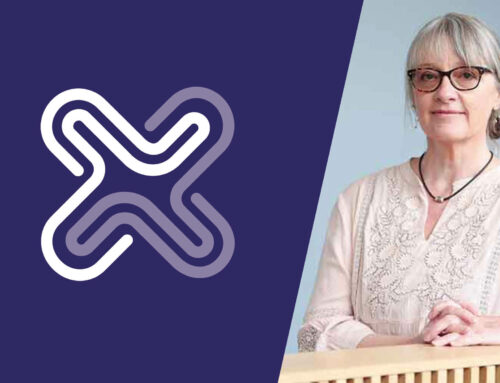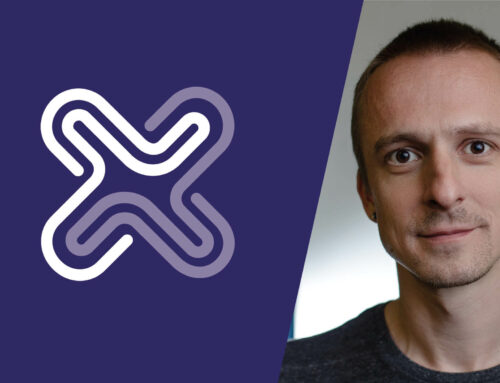An interview with Professor Anne Whittaker: Building evidence for children and families in the substance use field

Professor Anne Whittaker is a clinical academic in applied alcohol and drugs research and a Professor of Nursing in the Nursing, Midwifery and Allied Health Professions (NMAHP) Research Unit at the University of Stirling.
In the latest of our blog series, “Why Evidence Matters”, DRNS spoke to Professor Whittaker about her illustrious research career in the Children and Families substance use field. In our discussion, she talked about the importance of this research, the challenge of securing funding and research ethics and governance approvals to conduct studies with this population of families and the benefits to be gained from involving end users of research in “Citizen Science”.
“There has to be a political will…and commitment to fund these kind of studies with this population.”
Professor Anne Whittaker
DRNS: Why is it important to conduct research in this field?
“I would argue that the cost to society of not intervening in an effective way with these families is enormous in terms of costs to child welfare, costs to health, cost to the criminal justice system, cost to the family court system, and misery and trauma for the families. I would argue that we can’t not do something. We do have to try and progress this area of knowledge. Otherwise, it’s just going to be more of the same and it’s going to be intergenerational trauma and harm that just goes on and on.”
DRNS: In terms of creating evidence in the Children and Families field, what are the challenges?
“If I’m talking about doing research on parenting interventions or anything involving parents who use alcohol or drugs, that whole field of research is extremely challenging for multiple different reasons. That’s probably why not many people are doing it, because it’s too difficult, too challenging and too costly. To do high quality research in this field, for example, a randomised control trial or a very high quality quasi experimental study, then you’re talking about trying to involve a lot of research sites who can deliver an intensive complex intervention. That is a very challenging piece of work in the current circumstances. There are also real challenges regarding recruitment of mothers and fathers who are drug dependent, real challenges in terms of retention of that population in research studies, and also retention in the intervention. There are real challenges in trying to collect the data that you need for such studies. Getting the research team together that’s got all the right skills is also a challenge.”
“In the Children and Families field you’re involving mums and dads, the kids, kinship carers, and social workers, health care staff, and third sector staff. This is a multi-agency, multi sector field, you need multiple participants just to get one family recruited into a study. It’s very complicated. You’re not doing a simple health service study or a social work study. These families are involved with multiple agencies and they are complex needs families. It’s a complex system of care that’s providing care to these families, so if you really want to study this field to answer questions about feasibility, acceptability, effectiveness and implementation, you’re talking about a very complex proposal. Also, the interventions I’m talking about are not one-off interventions. These interventions might involve working with a family for a year. These are intensive, long interventions, so a randomised control trial delivering a ‘whole family’ intervention could take years, especially if you’re looking at a minimum 12 months post-intervention follow-up data. You’re talking about a very long and very expensive study.”
DRNS: What is the biggest challenge in the field?
“The biggest challenge is getting the level of funding that is required to fund such a study. Studies with this population are really expensive. That’s because they require intensive input from researchers. In these projects they’re having to do home visits to engage with the parents and family, sometimes having to do multiple visits just to get one piece of data. Often the children are in care, living with kinship or foster carers, so you do have to negotiate access with various people to see the parents and children together, for example during contact visits. When you cost these kinds of studies, they turn out to be extremely expensive. There has to be a political will and a commitment to fund these kinds of studies with this population.”
“I’ve always found it difficult to get funders to put a lot of money into research that involves people with drug and alcohol problems. The actual research costs in terms of the researcher time, and resources required is substantial. For most studies that I submit for funding, the feedback I invariably get is that it’s a very expensive study. The problem is that some funders have value for money funding formulations, and the kind of studies I do absolutely do not fit into their model of price per participant. You’ve got to make a very convincing argument about the potential value and impact of the studies that you’re asking a lot of money for.”
DRNS: What would help?
“I think what would make it a lot easier would be if there was more of a collaboration in terms of strategic approach. At the moment, it’s researcher-led proposals that are being submitted and funded. Certainly, there has never been a call for research in this field that is specific to this population. I’ve been working in this area for over 15 years, and there’s certainly never been a specific call for parenting or whole family interventions for this population, so that tells you something.”
“I think there’s interest in it in certain areas. However, the children and family and drug treatment fields are still very siloed. The drugs and addiction field are not really that interested in child and family welfare, and the child and family welfare research field is not really interested in addictions so unfortunately, that means you are generally trying to present a research project that doesn’t quite fit anywhere.”
“The problem is that, as a clinician, I think in real life these families aren’t separate families. They’re attending all these different services, but it’s the same family. They’ve often got multiple and complex needs – for example, substance use issues, mental health, domestic abuse, criminal justice, parenting and child protection etc., all within the context of extreme poverty and social deprivation. In order to improve their lives and the lives of their children they require a coordinated response which is much more of a whole family holistic response. They don’t actually benefit from seeing 10 different services and getting assessed 10 different times by 10 different people who are interested in 10 different things. The system of care is actually not helpful for families.”
DRNS: So, you are saying that they need joined up care? Maybe they also need joined up research?
“Yes. In an early intervention study I did a while back, I actually wanted the intervention to be delivered by a wide range of different practitioners including health visitors, addiction workers, social workers, and third sector family support workers. There was real promise in this particular intervention being delivered by different practitioners in different services who would be able to have different kinds of access to these families. But the funder has one funding stream that funds research within the NHS, and there’s another funding stream that only funds intervention research which is not in the NHS. I had to make a decision; do I try and get this study funded and just get it delivered by the NHS or do I forget the NHS and deliver this intervention in non-NHS services? To me that’s crazy. We’ve got integrated health and social care, but we haven’t got integrated research funding streams.”
DRNS: What about getting approvals to conduct research?
“Well, for me, obtaining NHS ethics approval is the easy bit. The difficult bit is getting the R&D (research and development) approvals. For example, in another study I’m working on at the moment we’re involving NHS, social services, and the third sector in England and Scotland. The R&D approval process for some of the third sector agencies and some social services are just as long winded and complicated as NHS R&D. If you’ve got 10 sites and you’ve got to do R&D approval and review processes for 10 sites or more, some have 50 or 100 sites, you can spend the best part of a year just getting R&D approval before you can actually start the study, sometimes longer. If you involve general practice (primary care), you’ve got to get R&D approval from every single general practice. The R&D approval process is definitely needed. You do definitely need to get management approval and site approval, but I don’t quite understand why it takes so long, and why it’s so complicated. Why can you not have the same application form and sign off process that is accepted across all sites?”
DRNS: What new directions are you excited about?
“The most recent thing that’s really excited me is what they’re calling “Citizen Science”. I’ve always tried to involve and engage the research population in the projects that I work on. That in itself has been challenging because my interest has always been people who are current drug users or current people who have fairly serious alcohol and drug related issues and their families. I’m not really that interested in studies involving people who are abstinent. So that makes it quite challenging. I have ended up involving people who are abstinent who have a history that’s related to the topic of the research. They can contribute in terms of talking about their own history and what they know of the field, but that’s quite different from someone who’s in the thick of it at that point in time and has direct experience that they can draw upon that’s contemporary.”
“I also think that clinicians and people who are involved in the field are really crucial to involve. I would call them people with experience as well, just a different kind of experience. They are on the provider end not the receiving end, although they might be on the receiving end at some point in their life, you never know. It’s always good to get multiple different perspectives in a field such as Children and Families work. I like this idea of citizen science in terms of people actually having a role in saying what it is that’s important, what it is from their perspective, where we need to develop knowledge or improve practice or think of alternative policies and practices to develop and test. They’re in a more empowered position to set the agenda. I think we’ve got such a long history of people at the receiving end of treatment and care not setting their own agenda in terms of what’s important to them, especially parents who use drugs, children and affected family members. It’s not until you start talking to people that you realise what is important and meaningful for people and what would actually make a difference for their lives. So, I think that’s a pretty crucial shift.”
DRNS: Are there barriers to Citizen Science?
“Whether funders are going to fund that kind of research, I’m not too sure. There’s a lot of rhetoric around these new areas of research, but whether they’re wiling to fund it and make it feasible is another matter. My idea of what citizen science would be like in the field of Children and Families and Addiction would definitely not be cheap, because this is not a population that will turn up to working parties and form a committee. That’s just not going to happen. You’ve got to find a way to really engage communities on their terms. I think if you do that, they are very willing to help and they have a lot to say. On one project we’re doing in general practice, we’re trying to interview some patients who use drugs and some affected family members about the prevention of drug deaths. The participant accounts are extremely powerful. They have a huge amount of insight into what their local communities actually need, what would really benefit them. Equally, GPs and all the different practitioners and services that work with GPs, they also have a huge amount of local insight. It’s whether you can get the funds and buy-in to actually harness that, and work with academics collaboratively with different agencies and community members. I think it is quite challenging. In this field it would not be cheap or quick to do that kind of work. However, it is necessary if we are to move beyond the current state of play in who determines the research, policy and practice agenda.”




